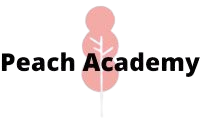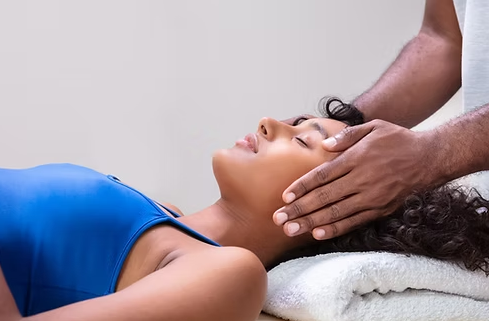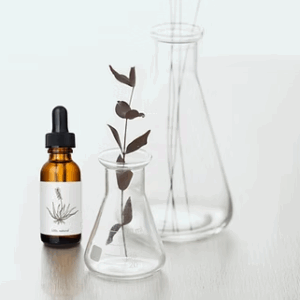Description
Program Overview:
The Associate Degree in Complementary and Alternative Therapies (CAT) provides foundational education and hands-on skills in holistic health and natural healing approaches. Students explore integrative therapies like herbalism, aromatherapy, massage, Traditional Chinese Medicine (TCM), and more. This two-year program prepares graduates for entry-level positions in wellness centers, spas, or to continue toward a bachelor’s degree in health sciences or holistic medicine.
🕒 Program Duration:
-
2 years (4 semesters)
-
60–64 credit hours
🎯 Program Learning Outcomes:
Graduates will be able to:
-
Understand the principles and practices of major complementary therapies.
-
Apply ethical and evidence-informed practices in client care.
-
Integrate CAT modalities into broader health and wellness contexts.
-
Perform basic assessments and recommend holistic health interventions.
-
Collaborate effectively with conventional and integrative healthcare professionals.
🧱 Degree Structure:
📚 Core Courses (36 credits):
-
Introduction to Complementary and Alternative Therapies
-
Holistic Health and Healing
-
Foundations of Herbal Medicine
-
Aromatherapy and Essential Oils
-
Introduction to Traditional Chinese Medicine
-
Principles of Ayurveda
-
Energy Medicine and Reiki
-
Massage Therapy Fundamentals
-
Ethics and Legal Issues in Holistic Practice
-
Anatomy & Physiology for Holistic Practitioners
-
Integrative Health Practices
-
Mind-Body Techniques: Meditation, Yoga, and Stress Relief
🧪 General Education (20–24 credits):
-
English Composition
-
Introduction to Psychology or Sociology
-
Human Biology
-
Health and Wellness
-
Communication Skills
-
Math for Health Sciences
📚 Course Descriptions & Syllabus Breakdown
🔹 Course 1: Introduction to Complementary and Alternative Therapies
Description:
Explores the history, philosophy, and modern use of complementary and alternative therapies. Students examine key CAT modalities and their roles in health promotion and disease prevention.
Modules:
-
Defining Complementary, Alternative, and Integrative Medicine
-
Historical and Cultural Roots of CAT
-
Common Modalities Overview (Herbal, Massage, Acupuncture, etc.)
-
Regulation, Certification, and Safety
-
Research and Evidence in CAT
-
Case Studies in Integrative Medicine
🔹 Course 2: Holistic Health and Healing
Description:
Focuses on holistic models of care, including the mind-body-spirit connection and wellness-based lifestyle interventions.
Modules:
-
Principles of Holistic Health
-
Wellness and Preventative Care
-
Spiritual and Emotional Dimensions of Healing
-
Lifestyle Medicine and Self-Care
-
Environmental and Social Determinants of Health
-
Cultural Competency in Holistic Practice
🔹 Course 3: Foundations of Herbal Medicine
Description:
Covers the identification, preparation, and use of medicinal herbs to support health and treat common conditions.
Modules:
-
Introduction to Herbal Pharmacology
-
Safety, Ethics, and Dosing Guidelines
-
Herbal Materia Medica (Top 20 Herbs)
-
Herbal Preparation Methods (Teas, Tinctures, Salves)
-
Herbal Protocols for Digestive, Immune, and Nervous Systems
-
Creating a Personal Herbal Apothecary
🔹 Course 4: Aromatherapy and Essential Oils
Description:
Explores essential oils for therapeutic purposes, including blending techniques, safety, and clinical uses.
Modules:
-
Chemistry and Extraction of Essential Oils
-
Safety, Dilution, and Contraindications
-
Aromatherapy for Stress, Sleep, and Mood
-
Immune Support and Respiratory Conditions
-
Creating Personal Care Products
-
Case Applications in Aromatherapy
🔹 Course 5: Introduction to Traditional Chinese Medicine (TCM)
Description:
Introduces key concepts in TCM, including Qi, meridians, yin-yang theory, and basic diagnostics.
Modules:
-
History and Philosophy of TCM
-
The Five Elements Theory
-
Qi, Blood, and Body Fluids
-
Meridian Theory and Acupoints
-
Introduction to Acupuncture and Moxibustion
-
Chinese Herbal Therapy
🔹 Course 6: Principles of Ayurveda
Description:
Covers Ayurvedic approaches to wellness based on doshas, diet, and natural remedies.
Modules:
-
Origins and Philosophical Foundations
-
The Three Doshas: Vata, Pitta, Kapha
-
Ayurvedic Nutrition and Lifestyle
-
Daily Routines and Seasonal Cleansing
-
Common Ayurvedic Remedies
-
Application of Ayurveda in Western Contexts
🔹 Course 7: Energy Medicine and Reiki
Description:
Explores the theory and application of energy-based healing techniques, with an emphasis on Reiki.
Modules:
-
Energy Anatomy: Chakras and Auras
-
The Science of Biofields
-
History and Principles of Reiki
-
Hand Positions and Treatment Protocols
-
Intuition and Client Communication
-
Ethics and Professional Practice
🔹 Course 8: Massage Therapy Fundamentals
Description:
Provides a practical introduction to massage theory, basic techniques, and therapeutic applications.
🔹 Course 9: Ethics and Legal Issues in Holistic Practice
Description:
Focuses on ethical considerations, client-practitioner boundaries, confidentiality, and state regulations.
🔹 Course 10: Anatomy & Physiology for Holistic Practitioners
Description:
Covers basic structure and function of the human body with a focus on systems relevant to CAT.
🔹 Course 11: Integrative Health Practices
Description:
Examines how to blend holistic therapies with conventional medicine for client-centered care.
🔹 Course 12: Mind-Body Techniques: Meditation, Yoga, and Stress Relief
Description:
Introduces students to stress-reduction techniques through breathwork, guided meditation, and basic yoga.






Reviews
There are no reviews yet.